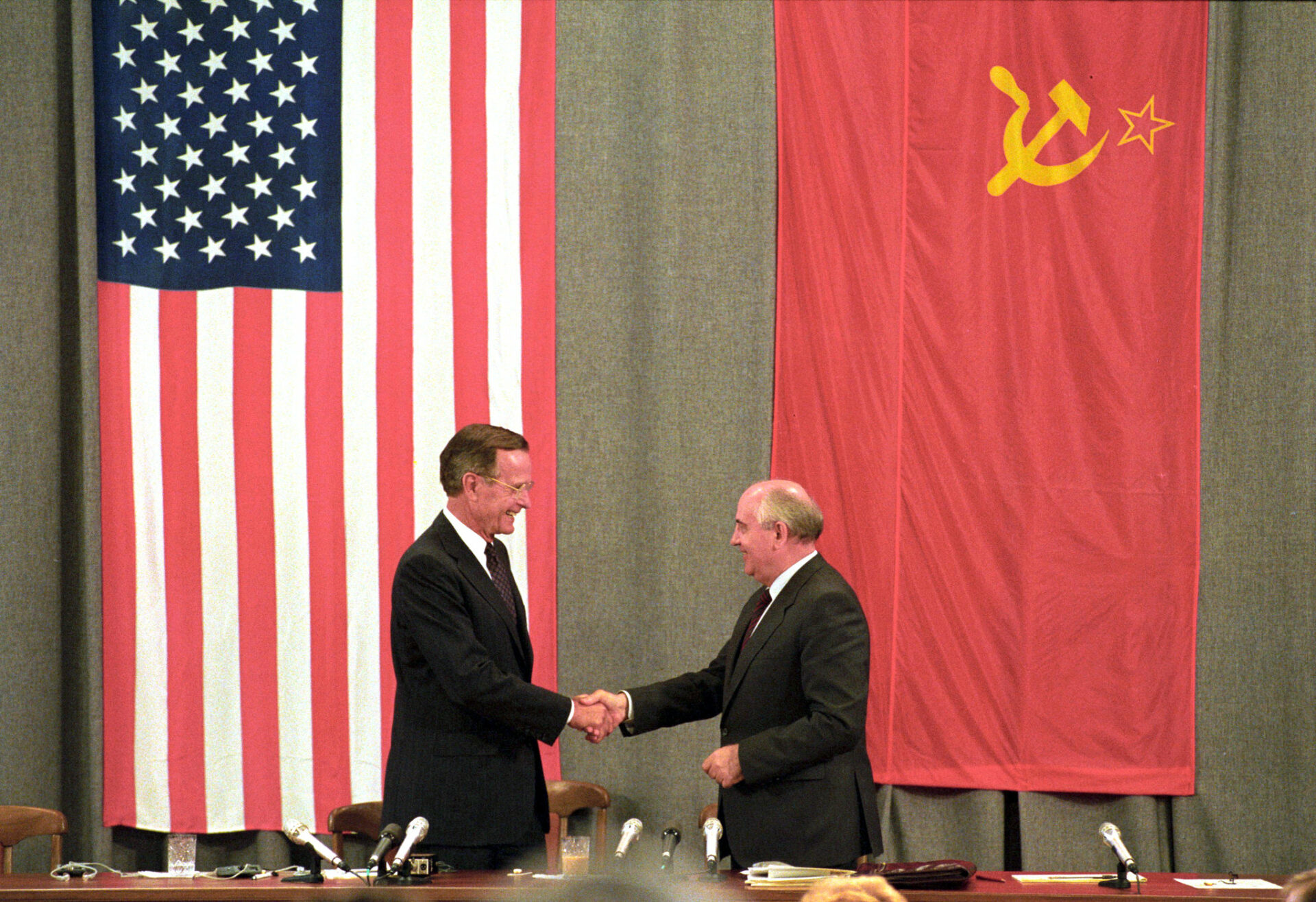In 1947, at the outset of the cold war, as the Soviet Union continued to expand its influence through¬out Europe, a leading American policy analyst, George Kennan (1904— ), published a highly influential article in the American journal Foreign Affairs. In it he discussed what the United States should do to offset Soviet influence. He wrote under the pseudonym “X,” though he had, in March 1946, sent the text of his argument, called “The Sources of Soviet Conduct,” as a cable directly to the U.S. Department of State. At the time Kennan was the second-highest ranking American diplomatic officer in Moscow. The Foreign Affairs article is reprinted here:
In actuality the possibilities for American policy are by no means limited to holding the line and hoping for the best. It is entirely possible for the United States to influence by its actions the internal developments, both within Russia and throughout the international Communist movement, by which Russian policy is largely determined.
This is not only a question of the modest measure of informational activity which this government can conduct in the Soviet Union and elsewhere, although that, too, is important. It is rather a question of the degree to which the United States can create among the peoples of the world generally the impression of a country which knows what it wants, which is coping successfully with the problems of its internal life and with the responsibilities of a world power, and which has a spiritual vitality capable of holding its own among the major ideological currents of the time.
To the extent that such an impression can be created and maintained, the aims of Russian Communism must appear sterile and quixotic, the hopes and enthusiasm of Moscow’s supporters must wane, and added strain must be imposed on the Kremlin’s foreign policies. For the palsied decrepitude of the capitalist world is the keystone of Communist philosophy.
Even the failure of the United States to experience the early economic depression which the ravens of the Red Square have been predicting with such complacent confidence since hostilities ceased would have deep and important repercussions throughout the Communist world. By the same token, exhibitions of indecision, dis¬unity and internal disintegration within this country have an exhilarating effect on the whole Communist movement.
At each evidence of these tendencies, a thrill of hope and excitement goes through the Communist world: a new jauntiness can be noted in the Moscow tread: new groups of foreign supporters climb on to what they can only view as the bandwagon of international politics: and Russian pressure increases all along the line in international affairs.
It would be an exaggeration to say that American behavior unassisted and alone could exercise a power of life and death over the Communist movement and bring about the early fall of Soviet power in Russia. But the United States has it in its power to increase enormously the strains under which Soviet policy must operate. to force upon the Kremlin a far greater degree of moderation and circumspection than it has had to observe in recent years. and in this way to promote tendencies which must eventually find their outlet in either the breakup or the gradual mellowing of Soviet power. For no mystical, messianic movement—and particularly not that of the Kremlin—can face frustration indefinitely without eventually adjusting itself in one way or another to the logic of that state of affairs.
Thus the decision will really fall in large measure on this country itself. The issue of Soviet-American relations is in essence a test of the overall worth of the United States as a nation among nations. To avoid destruction the United States need only measure up to its own best traditions and prove itself worthy of preservation as a great nation.

